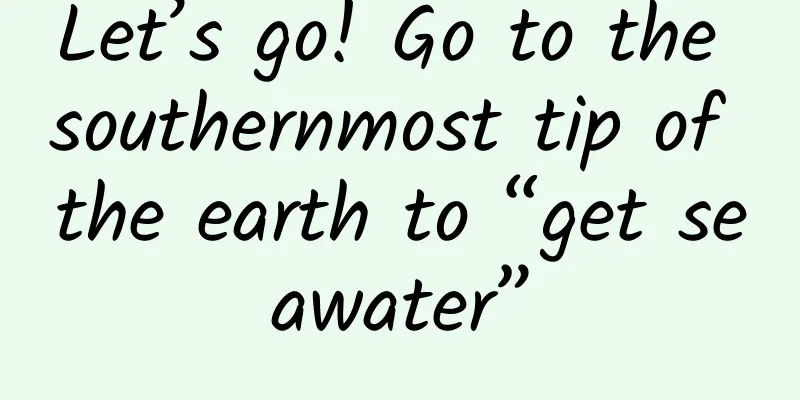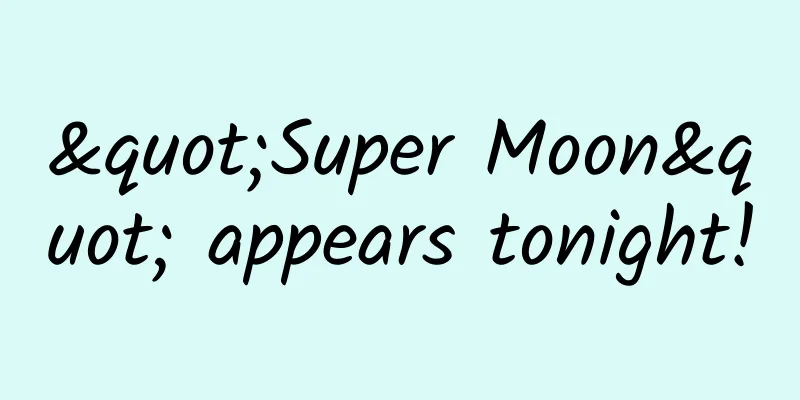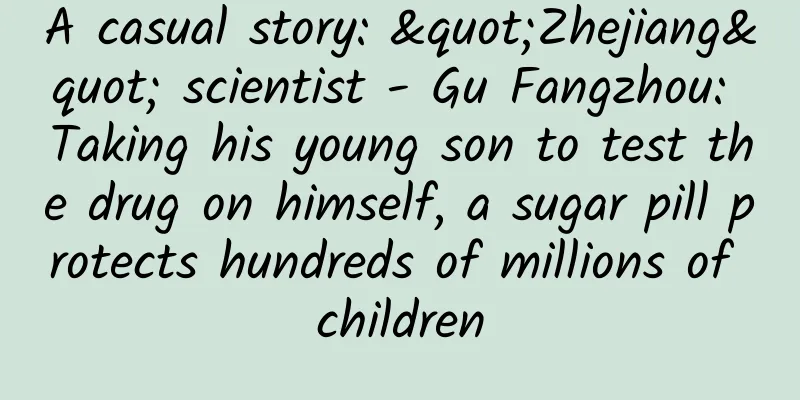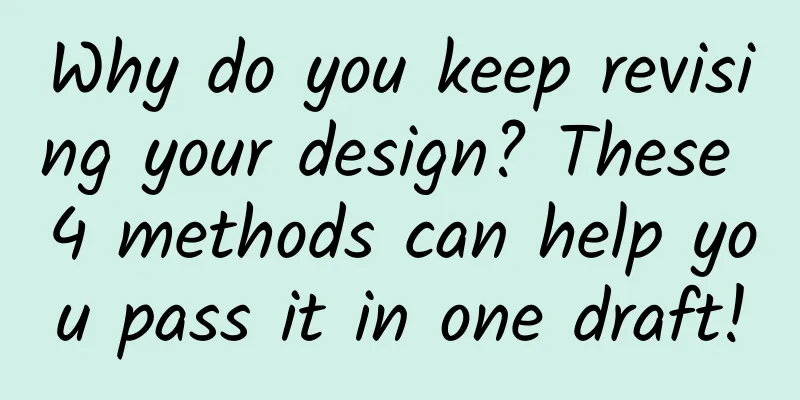The best things in life happen when you are alone
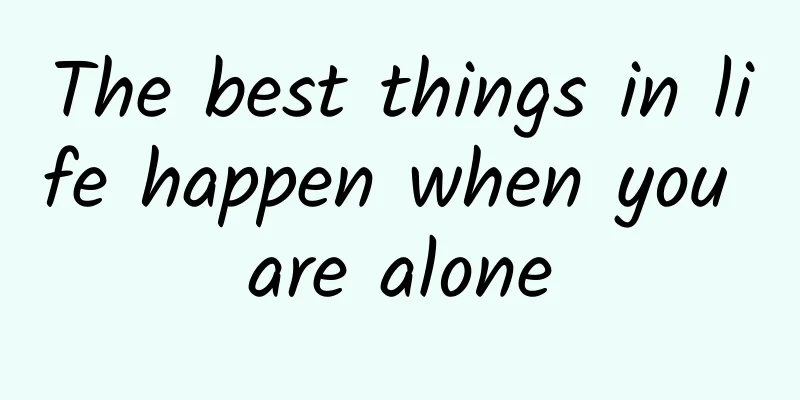
|
Leviathan Press: Being alone forces you to think about the meaning of your existence. When you are with others, you can find endless things to do, whether spontaneous or inspired, but once you are alone, you will start to think about the relationship between yourself and the world. The world we live in every day is made up of other people. Being alone means you will be isolated from your peers. We can explain the anxiety of being alone from an evolutionary perspective (it meant hunger and danger a long time ago), but it is undeniable that when you try to find a support, a companion who will last until death, a proof of existence, an explanation of the meaning of life, the most reliable thing is still yourself. This does not mean that you will be out of touch with society or deny others. On the contrary, this is a little trick to deal with the relationship with the world. Many of us are afraid of being alone. Loneliness makes us feel uncomfortable or even fearful. If you want to understand how much we don't want to be alone, consider this scientific study: The study gave participants two choices: receive an electric shock (mild) or be alone with their thoughts for 15 minutes. Believe it or not, many people chose the electric shock. But here’s the good news: Being alone is a skill. And like any skill, it gets better with practice. I’d recommend that honing this skill now can help you get through this coronavirus pandemic. You don’t have to fear solitude; you can rely on it. Whether you're self-isolating at home to combat the coronavirus or you're quarantined because you're already infected, the thought of being cut off from your friends for days, weeks, or even months may be causing you to panic. There’s a reason for this feeling: Social isolation is brutal. Needless to say, humans have evolved over thousands of years to find solace in each other’s presence, so when we’re isolated, we’re hurt on a physiological level. At the same time, we might recognize that our fear of being alone is not unique to the current pandemic. It’s a fear that has been lurking in our hearts for years because we have forgotten—or perhaps never really learned—how to be with ourselves, including with uncomfortable thoughts and emotions. “I think most of us are afraid of being alone because it’s a very scary process to learn about yourself,” Jack Fong, a sociologist who studies solitude at California State Polytechnic University, told me. To avoid giving into this fear, many of us keep the radio or TV on in the background or keep calling friends. Many factors combine to make us uncomfortable with solitude, and most of them are not our fault. As Jenny Odell explains in How to Do Nothing, we live in a culture that values sociability and constant connection, and if you choose to be alone, you are seen as a loser, a lunatic, and perhaps even a moral failure. When we are alone, we are increasingly at the mercy of the attention economy, bombarded with information that distracts and pleasurably bombards us. With external stimulation just a click away (mouse or keyboard), it has never been easier to tune out our inner world. Why sit around bored or sad when you can distract yourself by texting a friend, watching Netflix, or starting a video call? Indeed, these technologies seem to be everyone’s go-to balm for loneliness during the pandemic. But don’t get me wrong: they really work. Like I said, loneliness takes a toll on us both physically and mentally. I live alone, so to stay sane, I’ve been doing some virtual nights over the past few weeks. These solutions are unsatisfying, though, because they’re all about how to avoid being alone, not how to be alone. This avoidance can make us more afraid of being alone. Decades of psychological research have taught us that trying to avoid painful emotions is a poor long-term strategy; it tells our brains that we can’t handle the emotion, and our pain actually worsens. So how can we use this opportunity not to avoid solitude but to embrace it? We can learn from those who figured out how to do it long before the coronavirus hit. What We Can Learn from Solitary Confinement Survivors First, we need to distinguish between voluntary solitude and forced solitude. Many people have tried solitude voluntarily, such as hermits, monks, philosophers, and artists, and they all have experiences worth learning from. But for now, the experiences of people who have been forced to be alone are the most instructive for us. Consider what Keith LaMar, who spent 27 years in solitary confinement in a supermax prison, recently said in Mother Jones — I mean, I think solitary confinement is a sentence that should be eliminated, it makes our self-imposed, technology-enabled isolation look like a walk in the park. There's no comparison. However, in the current context of mass isolation, Lamar and journalist Jason Rezaian, who survived solitary confinement in an Iranian prison, discuss their experiences in an effort to help us. So let’s consider Lamar’s insights: Solitary confinement is about being forced to be alone: You're running around, just like people do in their daily lives. Now all of a sudden you're on your own, and you realize that, in many cases, there's nothing inside you. Everything is outward. That's what happened to me 27 years ago, and it's what's happening to a lot of people now who are facing this for the first time - it's like being thrown into the ocean. You have to learn how to swim. You have to learn how to deal with yourself. I'm lucky in so many ways. My cell has a three-tiered bookshelf and a desk to sit and write. I have lots of music to listen to and books to read. I paint, work out, do yoga, and meditate. Not to distract myself, but to get to know myself more deeply. I saw a lot of people break down and lose their minds. But I was moving in another direction. So 27 years later, I am still healthy and well. I attribute this to reading and self-discipline. That's how it is, when you are alone, you find that you are stronger than you think. Many systems prevent us from recognizing our own strength, and this epidemic is a good opportunity to understand ourselves. ... I hope that young people who are forced to isolate at home and cannot access mainstream courses can get a glimpse of their true selves and use this as an opportunity to understand themselves more deeply. From this perspective, there is a lot of wisdom in solitude. In fact, it echoes important observations scholars have made about solitude over the years. First, to be productive in solitude, you must accept that you are “forced into solitude”—to face reality instead of leaning into distractions. Then, you must “put something into yourself”—to make solitude a creative practice that allows you to understand yourself more deeply and further improve yourself. Matthew Bowker, a solitude researcher at Medaille College, says something very similar in The Handbook of Solitude, noting that being good at solitude “implies the ability to generate significant, valuable experiences within one’s inner world, because if one wishes to be alone and not just to feel disillusioned or hungry, then one must be able to generate and have something important.” In other words, stop thinking of solitude as an experiment in subtraction and start thinking of it as an experiment in addition. What you are adding is yourself—your authentic self—because it is ultimately you who are building it, not others. You no longer have to pin your hopes on other people’s attention or approval. Psychologist DW Winnicott often distinguished between the "true self" and the "false self." Without realizing it, he said, we look to other people to build our sense of self. It's others who construct our identity. When we're alone—when the judgments and preferences of others are no longer shaping our self-perception—our identity tends to collapse. This can be scary, but it's also a gift. Because when the false self disappears, space emerges to build a more authentic self. What We Can Learn From People Pretending to Live on Mars Psychologists have found that another key factor to successful solitude is having a clear sense of purpose. Steve Cole, a researcher at the University of California Los Angeles, has studied interventions designed to help people cope with loneliness. He has found that those that work tend not to focus on reducing loneliness but on increasing people’s sense of purpose. Cole recalls a pilot program that paired lonely older adults with elementary school students to mentor and care for them. “Whisper it was an intervention for older adults,” Cole told Vox. Philosophers have also noted the reinforcing effect of a clear sense of purpose. “Nietzsche said that if you find purpose in suffering, you can endure all the suffering that comes with it,” the sociologist Fong told me. “But when people lose purpose in suffering, they go crazy.” In 2003, Kate Greene moved into a spherical dome atop a volcano in Hawaii, where she spent four months pretending to be an astronaut on Mars. NASA funded the experiment because it needed to know how humans cope with being alone, so that real space missions wouldn’t fail because someone got lonely. In a recent essay, Greene confessed that her time in the dome was difficult. Separated from her loved ones and overwhelmed by confusing mission information, she had a hard time maintaining her sense of purpose. But when she did, everything was different, she wrote: Remembering that what we are doing might benefit the future of human exploration, and even the future of humanity, keeps me grounded when I want to fly, and allows me to soar when I feel heavy and stuck. The amazing thing is that focusing on being part of something historic, doing something potentially great for others, is often enough. Billy Barr, who has lived alone in an abandoned mining shack in the Rocky Mountains for nearly 50 years, offers very similar advice: We should all write things down. For him, it was the environment that needed to be recorded. How high was the snow today? What animals were present this month? He has been tracking the answers to these questions for decades, and his records have actually had an important impact on the science of climate change. Now, he recommends that people in quarantine get through the coronavirus pandemic by participating in citizen science projects, such as CoCoRaHS, which tracks rainfall. "I would absolutely recommend that people do this," he told WAMU. "You get a little rain gauge, you put it outside, and you become one of the thousands of people doing the same thing at the same time on the same day." Both Barr and Greene stress the importance of routine—small daily rituals that bring peace of mind and make our day feel more real. The rewards and risks of solitude Being alone has many benefits, but it can also be dangerous if not handled properly. First, let’s talk about the benefits. Many naturalist writers, including William Wordsworth, Henry David Thoreau, Annie Dillard, and Mary Oliver, have described how solitude allowed them to reconnect with nature and gain a deep sense of well-being through it. Many artists swear by solitude as a necessity for creativity. “I paint with my back to the world,” said painter Agnes Martin, because “the best things in life happen when you are alone.” Most of the world’s religions recognize the benefits of solitude for spiritual insight, even if they hesitate to make it a permanent path. The Hebrew Bible records that Moses spent 40 days alone on Mount Sinai before receiving the Torah. Symeon the Stylite, a Roman ascetic, lived on a 60-foot pillar for 37 years! Hinduism and Buddhism have long traditions of solitude in the forest. Christianity has its share of hermits: My favorite is Julian of Norwich, who, at age 30, asked to be confined to a cell forever so she could receive revelations from God and write about them. Trappist monk Thomas Merton and psychologist Carl Jung both noted that being out of society enables us to perceive and conjure up illusions about it. “I am a solitary man,” Jung wrote, “because I know things which others do not know, and do not even want to know, and I must remind them of them.” In Thus Spoke Zarathustra, Nietzsche proposed that solitude can provide a moment of healing from the excessive noise of our society (“Escape, my friend, into solitude! I see that you are confused by the noise of the world”) and reconnect with ourselves (“Go into solitude…to find your way to yourself”). However, solitude also comes with certain dangers. The problem is that, as Nietzsche's Thus Spoke Zarathustra puts it, "everything, even the beast within, thrives in solitude." This means that anxiety, depression, or other negative emotions may also breed. Therefore, the philosopher believes that "solitude is unwise" for many people. “Nietzsche was very prescient in understanding that being alone is dangerous,” Fang told me. “The inner cave you enter can be a very scary place if you are not ready for it. For people who have psychological problems and have not yet been cured by a psychiatrist, it may not be a good place.” That’s why psychologists often recommend graduated exposure. If you’re afraid of being alone, ideally you’d start with short periods of time alone, slowly increasing them once you’ve proven to your brain that it can actually tolerate the pain. If you’re in the middle of a panic attack, that’s not the best time to hone a new skill; you may need to relieve the pain first. Engaging your senses and bringing yourself back to your body is a commonly recommended way to relieve the pain of being alone (it’s no coincidence that social media is suddenly full of people baking sourdough bread and growing herbs). Unfortunately, the coronavirus outbreak didn’t allow us to gradually adjust to solitude as we might have hoped; isolation came unexpectedly. It’s not an ideal situation, but even in this situation, we can cultivate the ability to be alone. Practical Guide: How to Practice “Suffering Tolerance Skills” When You Are Alone The best step-by-step guide I've read comes from the Centre for Clinical Interventions, which is supported by the Australian Government Department of Health. Psychologists there have published a comprehensive guide on developing "distress tolerance". The guide uses evidence-based approaches based on cognitive behavioural therapy and mindfulness, and is available to read online for free. It's a guide worth reading in its entirety, but I'll give a summary of the steps recommended in the guide. The first step is to accept the pain you're feeling. Rather than resorting to the usual escape tactics to avoid uncomfortable emotions (whether that's binge-watching TV, drowning your sorrows in alcohol, or something else entirely), do the opposite: stay with the emotion. Step two, observe the emotion. Notice how it manifests in your tense muscles, or describe it with imagery ("This feeling isn't me, it's like clouds floating across the sky"), which may help you detach from it a little. Continue observing until it naturally subsides. The third step is to return your attention to what you want to do in the present moment. This can be a simple internal task, such as focusing on your breathing, or an external task, such as volunteering to help those in need during the epidemic. Expect the painful feelings to return, but also know that by facing them head on, rather than running from them, you are telling yourself that you are strong enough to handle these emotions. If this sounds familiar, it’s because it echoes the strategies developed by experienced solitude experts we mentioned earlier, such as survivors of solitary confinement and people on simulated missions to Mars. Embracing solitude, allowing it to lead you to a deeper understanding of yourself, and remembering your purpose—these are tried-and-true strategies for solitude. You’ll find the same strategies in other sources, such as contemporary Western psychologists, mindfulness teachers, and ancient Buddhist texts. Maybe this can be comforting. Remember, as lonely as you may feel right now, there are many people who have experienced solitude before you. They left their best advice on how to make the most of it. In a sense, you are right there with them now. You can also communicate with friends and family through phone calls, video, etc. We can definitely continue to use these remote communication technologies. There is a difference, though, between using these technologies out of desperation and using them out of mindfulness. In the former, we crave to escape solitude by chattering nonstop; in the latter, we have already faced the pain of solitude and experienced its natural decline. For the latter, psychologists say, cloud disco becomes a reward for us to approach solitude rather than avoid it. By Sigal Samuel Translated by Amanda Proofreading/Yord Original article/www.vox.com/future-perfect/2020/4/11/21212845/how-to-be-alone-coronavirus-quarantine-isolation-solitude/ This article is based on a Creative Commons License (BY-NC) and is published by Amanda on Leviathan The article only reflects the author's views and does not necessarily represent the position of Leviathan |
>>: The guy inserted a catheter into his own heart and won a Nobel Prize!
Recommend
10 little habits after meals that many people take for granted, 1 of which is really not recommended
Regarding "what you can and cannot do after ...
In the era of mobile Internet, how can we find accurate users and obtain first-hand traffic at the lowest cost?
How can we find the precise users of our products...
9 strategies for optimizing information flow ads!
Account optimization refers to the process of con...
WeChat Reading’s 7 user invitation mechanisms!
I read books on WeChat Reading quite often. It ma...
The Ultimate Guide to Creating and Publishing Android Libraries
I am often amazed by the number of useful third-p...
Counterpoint: European passenger electric vehicle sales increased 17% year-on-year in Q3 2022
According to the latest research from Counterpoin...
360 Search Ads Promotion Keyword Adding and Setting Guide!
What are keywords? Keywords are words or short ph...
How to wear glasses elegantly after wearing a mask?
Since I put on a mask, I have to do one more thin...
First time in China! The thousand-year-old lotus that lived at the same time as Su Shi and Li Qingzhao bloomed in Zhejiang
On July 12, staff from the Lishui Museum posted a...
High hourly rents scare off users. Why are shared power banks trapped in their carefully woven business models?
The ever-increasing prices of shared power banks ...
What factors make users willing to share?
A few days ago, “My Story with WeChat” went viral...
Hybrid APPS Why I am optimistic about you - a tribute to front-end engineers
[[143937]] At the very beginning, the Web used th...
These situations are the most likely to cause poisoning! Beware of these highly toxic wild creatures!
Audit experts: Chen Zuohong, Professor of Hunan N...
Zhang Qi's "Traffic Digging and Exploring Omni-channel Growth" has 3 major sections to decipher traffic strategies and easily get the code for network-wide growth
Training course video lecture content introductio...
